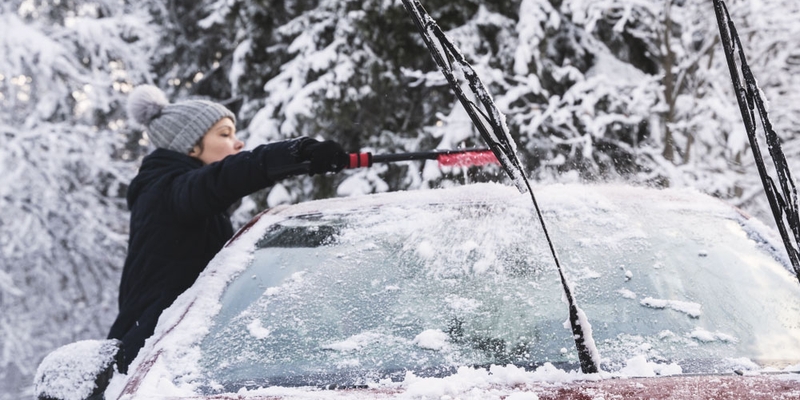
If you are not redirected within 30 seconds, please click here to continue.
Samedi: 10h – 16h HAE

If you are not redirected within 30 seconds, please click here to continue.
If you are not redirected within 30 seconds, please click here to continue.
Is rustproofing your car worth the added cost?

This article has been updated from a previous version.
Few aspects of your car purchase generate as much debate to whether or not you should rustproof your car. Dealers will insist it’s the key to preventing your car from turning into a rust wreck after the next rainstorm.
On the other hand, in this age of advanced materials engineering, rustproofing may no longer be necessary for newer cars. In fact, many automakers are confident enough in their products to provide rust warranties on new cars for up to twelve years.
In reality, the best approach lies somewhere between obsessing over any amount of corrosion buildup and willfully ignoring it.
The salty problem of rust in Canada
Rust is the natural result of iron, water, and oxygen interacting. However, modern automotive materials and manufacturing processes ensure that a bit of rainwater alone won’t immediately corrode your new car.
But when it comes to rust build-up on your car in Canada, water isn’t the only threat you have to worry about.
Statistics Canada reports that Canadian roads endure about five million tonnes of road salt annually to combat ice and snow annually. These strong de-icing chemicals are also adept to eroding the rust-resistant alloys in modern cars. Coastal cities face a similar challenge due to high salt content in the ocean air.
What can you do to rustproof your car?
While regular car washes can inhibit the salt, rustproofing offers a physical barrier that protects your car from these highly corrosive elements.
There are several different popular rustproofing methods, each with their own advantages. Here are just a few options to keep your car shiny and rust-free through the long winter.
Related: Winter car maintenance tips that’ll save you money
Tar spray
Tar spray is a classic method where a thick, tar-like substance is sprayed on the underside of your car that hardens into a semi-permanent barrier. This tried-and-true method effectively shields Canadian vehicles against the slush and salt.
However, tar spray has its limitations. Over time the rigid coating can crack, allowing moisture to accumulate against the bare metal. It’s also difficult to get the spray into tight spaces, leaving crevices and hard-to-reach spots unprotected.
Tar spray typically costs $130 to $150 for a sedan and $150 to $170 for an SUV or truck in Canada.
Dripless oil spray
Like tar spray, dripless oil spray involves coating rust-prone parts of your vehicle with a hardening, wax-like barrier.
This method is more extreme than tar spray as it involves technicians drilling holes in various panels around the car to increase spray coverage. While it covers more of the vehicle than tar spray, it’s susceptible to cracking, which can trap moisture and lead to corrosion. Regular check-ups are recommended to catch and repair any cracks early.
Starting at $130 and ranging up to $170, this service is recommended every 18 months and caters to various vehicle sizes. There are three common packages that are offered:
- Underbody package (U): Priced between $60 and $100, this option covers the underside, bumper supports, wheel arches and liners, as well as the rear bumper supports.
- Essential package (E): Available for $90 to $119, this package targets critical seams, including the hood seams, bottom door seams, and trunk lid seams, to keep corrosion at bay.
- Complete package (C): For comprehensive protection, the Complete Package covers the entire vehicle and is priced between $130 and $170. It's an all-encompassing solution to keep your car rust-free.
Learn more: What is a preferred auto body shop?
Drip oil spray
Drip oil spray provides even greater coverage than dripless spray. It uses a fine mist of lightweight oil, sprayed onto the car with compressed air through strategically drilled holes to reach as much of the chassis (car frame) as possible. The oil forms a chemical bond with the metal, displacing any moisture and creating an effective but relatively temporary shield.
Drip oil sprays need to be reapplied annually, as they can wear away with regular use.
Electronic rust protection
This method doesn’t involve physical barriers or sprays. The concept is simple: An electronic module installed on the vehicle’s chassis delivers a constant, low-grade electric current through the metal to inhibit corrosion.
While it sounds promising, its effectiveness outside of marine applications is still somewhat debated by customers and automotive experts, despite being derived from a method used on submerged portions of metal bridges.
Costs and providers
If you’re looking for rustproofing, the dealership is your most convenient option, but it’s not your only option. Third-party companies specialize in various types of rustproofing and may offer better value. For spray-type applications on sedans, pricing can start in the low hundreds.
Electronic rustproofing modules retail in the $150 range, though dealers may charge significantly more for them, charging between $500 to $1,000. It’s always worth shopping around to find a reasonable price before committing to any service at the dealership.
Related: What to do if you suspect your mechanic is making fraudulent repair charges
Is rustproofing worth it?
Regardless of which option or provider appeals to you, the question remains: is rustproofing worth the investment?
Drivers with leased vehicles, or those planning to sell their cars after only a few years are also unlikely to encounter rust, as long as they maintain regular car washes. In such cases, the cost of rustproofing is unlikely to create any value until after the vehicle leaves your hands.
However, rustproofing offers tangible benefits for long-term ownership. This is true whether you live in colder cities like Calgary and Saskatoon, on Canada’s East or West coasts, or in densely populated areas like Montreal or the Greater Toronto Area.
The Automobile Protection Association, a Canadian consumer watchdog, suggests that drivers may start to notice rust after five or six years of ownership.
Considering traditional financing terms can stretch as long as eight years, owners may see their cars corroding long before they finish their payments. Similar to other forms of preventative maintenance, annual rustproofing can pay for itself over a vehicle’s lifespan as long as you make an informed decision at the time of purchase. It might be a wise idea to invest some of the savings from your next new car purchase in additional rust protection.
Does insurance cover rust?
Contrary to what you may think, your new vehicle’s comprehensive warranty coverage doesn’t include protection against rust-related damage. Comprehensive coverage usually only applies to losses resulting from incidents other than collisions. But do you need extra protection against rust if you’re diligent about maintaining your car?
Rustproofing is a great way to give yourself peace of mind, especially when facing challenging weather conditions. However, having the right car insurance is even more critical when road conditions turn icy. Get the coverage you need at the best possible price by comparing auto insurance quotes.
Read next: What will my car and home insurance policies cover when it comes to storm damage?
Don't waste time calling around for auto insurance
Use RATESDOTCA to shop around, and compare multiple quotes at the same time.
Get money-saving tips in your inbox.
Stay on top of personal finance tips from our money experts!









